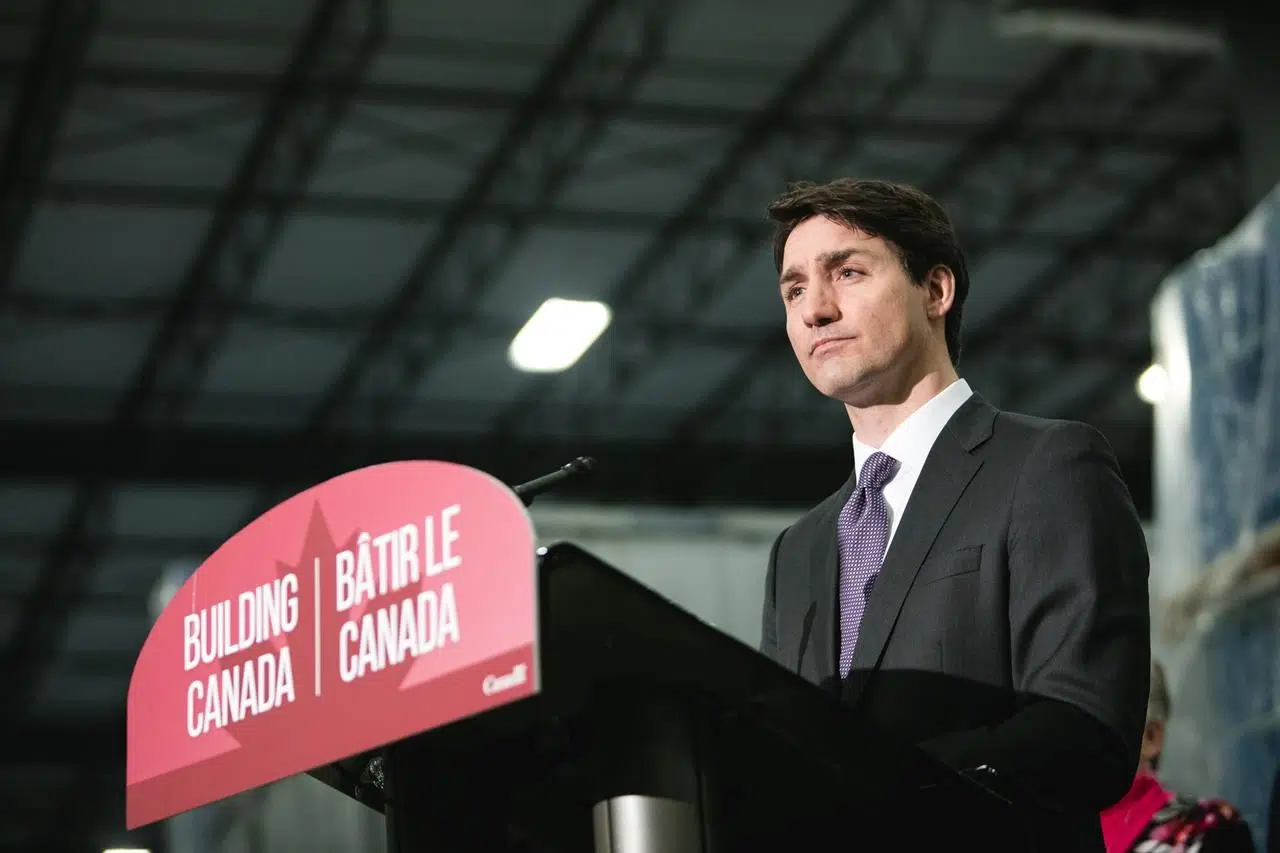OTTAWA — Canadians should heed the words of the country’s top public servant on allegations that the Prime Minister’s Office pressured former attorney general Jody Wilson-Raybould to stop a criminal prosecution of Montreal-based engineering giant SNC-Lavalin, Prime Minister Justin Trudeau says.
Privy Council clerk Michael Wernick told the House of Commons justice committee Thursday that no improper pressure was applied to Wilson-Raybould, who quit the cabinet last week, and that Trudeau’s staff have conducted themselves with “the highest standards of integrity.”
Speaking to reporters at Memorial University in St. John’s, N.L., on Friday, Trudeau said Wernick’s words should carry weight.
“The clerk of the privy council, Michael Wernick, is an extraordinary public servant who has served this country and continues to serve this country under governments of different political stripes, with integrity and brilliance,” said Trudeau. “He is someone we need to heed very carefully when he chooses to express himself publicly and I’m sure everyone is taking a careful look at his words yesterday.”
Some opposition MPs and pundits have suggested Wernick went too far in supporting the government.
“Wernick’s arrogance, thinking that he knows better than the people elected by Canadians for the express purpose of telling him what to do, is on display here, as is Trudeau’s complicity,” Conservative MP Michelle Rempel tweeted Friday. “No public servant should follow this lead.”
Trudeau emphasized Wernick’s decades of service as a senior public servant under Liberal and Conservative governments, saying it “leaves him well positioned to understand what our institutions are grounded in and make sure we are doing the right things as a government.”
SNC-Lavalin, much of whose business is civil engineering and public construction projects, is facing charges of fraud and bribery in relation to its efforts to secure government contracts in Libya.
Trudeau’s government has been rocked by anonymous allegations that Wilson-Raybould was under pressure from the Prime Minister’s Office to instruct the director of public prosecutions to negotiate a remediation agreement with SNC-Lavalin — a kind of plea bargain that would force the company to pay restitution but would spare it a criminal conviction that could cripple it by barring it from bidding on government contracts for up to 10 years.
Wernick told the committee that Trudeau was worried a prosecution might result in SNC-Lavalin moving its operations overseas or closing up shop, hurting innocent employees, shareholders, pensioners, third-party suppliers and communities in which the company operates. Wernick said he told Wilson-Raybould about those concerns during a conversation in December but that his intention was to provide “context,” not pressure.
He also said the prime minister assured Wilson-Raybould at every opportunity that a decision on whether to halt the prosecution was hers alone.
On Friday, Trudeau echoed Wernick’s remarks, once again denying any wrongdoing and repeating that anything done by his aides was with the idea of protecting jobs and the economy while ensuring the independence of the judiciary was maintained.
“As people know, this is an issue we have looked at very seriously over the past many months,” he said. “It is something we consider to be an important role of the government to protect jobs, to create economic growth, but to do so in a way that makes sure we are always protecting, upholding the rule of law.”
However, Trudeau was not as eager to heed Wernick’s opinion on solicitor-client privilege, the principle Wilson-Raybould has repeatedly cited to refuse comment on the allegations that she was improperly pressured. The clerk told the committee he doesn’t think solicitor-client privilege applies in this instance and it’s up to Wilson-Raybould to choose how much she wants to say on the matter.
Trudeau said he is still receiving advice on whether to waive the bond of secrecy between lawyer and client because there are potential consequences for two ongoing court cases against the company.
“This is something that we do have to take seriously because it is a fundamental part of our justice system,” he said.
Mia Rabson and Joan Bryden, The Canadian Press







